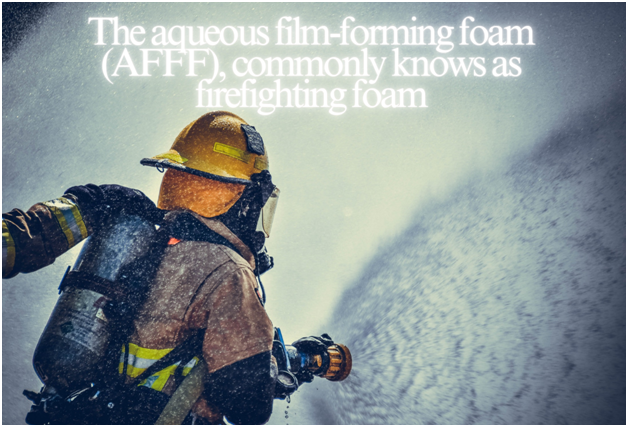Firefighting Foam's Fiery Controversy:
Health Concerns Spark Legal Maelstrom
For decades, Aqueous Film-Forming Foam (AFFF) reigned supreme as the go-to fire suppressant for jet fuel and petroleum blazes. Its effectiveness was hailed, especially in the military and at airports. But now, a storm cloud of legal battles and health concerns gathers, fueled by its main ingredient: per- and poly-fluoroalkyl substances (PFAS).
The Dark Side of PFAS:
PFAS, dubbed "forever chemicals" due to their persistence in the environment and body, are raising red flags due to potential health risks. The U.S. Environmental Protection Agency (EPA) lists them as potentially hazardous, and studies are painting a troubling picture. Firefighters, exposed to AFFF regularly, are now at the center of this controversy.
Cancer in the Crosshairs:
Over 4,000 firefighters claim consistent AFFF exposure led to various cancers, including:
● Bladder, breast, colorectal, leukemia, liver, lymphoma, pancreatic, prostate, kidney, testicular, thyroid, uterine, and more.
● These claims have ignited a legal firestorm, with consolidated lawsuits in South Carolina aiming for streamlined proceedings and potentially a monumental global settlement
Bellwether Trial: A Potential Game-Changer:
The City of Stuart v. 3M Co., et al. trial stands as a bellwether, closely watched by all parties. Accusations fly that the defendants' contaminated the city's water with PFAS from AFFF, leading to health problems. A win for the city could trigger a multi-billion dollar settlement, sending shockwaves through the industry.
Science Sounds the Alarm:
Research institutions are adding fuel to the fire. The National Institute of Standards and Technology (NIST) found PFAS in firefighter gear, with higher concentrations in outer layers where contact is most frequent. This suggests long-term accumulation in firefighters' bodies, raising serious concerns.
Unveiling the Link: A National Effort:
President Biden's "Cancer Moonshot" program launched the National Firefighter Registry (NFR) for Cancer. This initiative aims to gather and analyze data on firefighters' work histories alongside state cancer registries. Establishing a clear correlation between firefighting and elevated cancer rates could be instrumental in shaping future policies and regulations.
Another Legal Battleground:
The legal landscape extends beyond individual lawsuits. The International Association of Fire Fighters (IAFF) is suing the National Fire Protection Association (NFPA), alleging they mandated PFAS in firefighter gear despite known health risks. This lawsuit highlights systemic issues within the firefighting industry, demanding accountability and stricter safety standards.
Looking Ahead: Uncertainty and Change:
As legal battles progress and research findings accumulate, AFFF's future remains uncertain. The number of lawsuits is expected to rise, putting pressure on manufacturers and potentially leading to a global settlement. The implications could be far-reaching, impacting not only AFFF manufacturers but also PFAS exposure victims, firefighters, and the entire firefighting industry.






